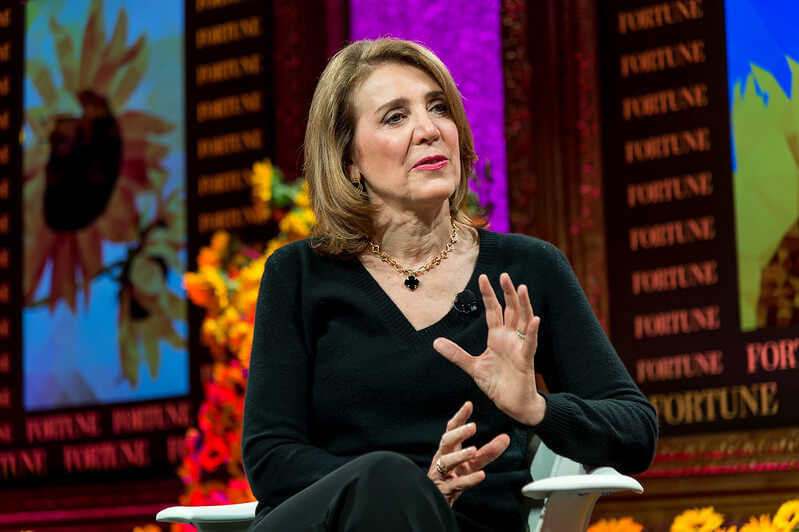Hey there! Ever wondered about the powerhouse behind some of the world's most successful leaders? Well, let me tell ya, it's no coincidence that so many big names in business, finance, and entrepreneurship have roots at the Wharton School of Business. Exploring the legacy of Wharton School of Business notable alumni is like diving into a treasure chest filled with stories of ambition, innovation, and sheer brilliance. So buckle up, because we're about to take a deep dive into what makes Wharton's alumni network so extraordinary.
Wharton School of Business isn't just another business school—it's a breeding ground for game-changers. From Fortune 500 CEOs to tech pioneers and financial wizards, the school has churned out some of the brightest minds in the global economy. But what exactly sets Wharton apart? And why do its alumni continue to shape industries worldwide? Let's peel back the layers and uncover the magic behind this prestigious institution.
Now, if you're thinking, "Is Wharton really worth all the hype?"—you're not alone. But trust me, by the time you finish reading this, you'll see why exploring the legacy of Wharton's notable alumni is more than just a fun exercise; it's a lesson in leadership, strategy, and success. So let's get started!
Read also:Trisha Krishnan The Versatile South Indian Actress Who Captivates Audiences
Table of Contents
- Introduction: The Wharton Edge
- A Brief History of Wharton School
- The Power of Wharton's Alumni Network
- Biographies of Notable Wharton Alumni
- Success Stories from Wharton Grads
- Entrepreneurial Minds from Wharton
- Leadership Lessons from Wharton Legends
- Global Impact of Wharton Alumni
- Challenges Faced by Wharton Alumni
- The Future of Wharton's Legacy
- Conclusion: Why Wharton Matters
A Brief History of Wharton School
Let's rewind for a sec. Founded way back in 1881, the Wharton School of Business at the University of Pennsylvania was the first collegiate-level business school in the United States. Talk about being a trailblazer! Back then, business education wasn't exactly mainstream, but Joseph Wharton, the school's founder, had a vision. He wanted to create leaders who could drive economic progress through knowledge and skill. And boy, did he deliver!
Fast forward to today, and Wharton has become synonymous with excellence. Its programs are ranked among the best globally, attracting students from every corner of the globe. Whether it's MBA, undergrad, or executive education, Wharton offers a wealth of opportunities for those looking to make their mark in the business world.
But here's the kicker—Wharton doesn't just teach you how to crunch numbers. It shapes your mindset, sharpens your critical thinking, and equips you with the tools to navigate an ever-evolving business landscape. That's why exploring the legacy of Wharton School of Business notable alumni feels like opening a door to endless possibilities.
The Power of Wharton's Alumni Network
Alright, let's talk about one of Wharton's biggest strengths—its alumni network. With over 100,000 alumni worldwide, Wharton boasts one of the most robust and influential networks in the business world. These aren't just random folks, either. We're talking about titans of industry, policymakers, and entrepreneurs who are shaping the future as we speak.
Why is this network so powerful? For starters, it creates a web of connections that can open doors for aspiring professionals. Imagine having access to mentorship, job opportunities, and collaborations with some of the brightest minds in your field. That's exactly what Wharton's alumni network offers. Plus, it fosters a sense of community and shared purpose that extends far beyond graduation day.
And let's not forget about the resources. Wharton alumni often contribute to research, guest lectures, and even funding initiatives that benefit current students. It's like a never-ending cycle of giving back, and it's one of the reasons why Wharton remains at the forefront of business education.
Read also:Discover The Magic Behind The Happy Days Cast A Journey Through Time
Key Stats About Wharton Alumni
- Over 100,000 alumni globally
- Alumni in leadership roles at Fortune 500 companies
- Significant contributions to industries like finance, tech, and healthcare
- Active alumni chapters in major cities around the world
Biographies of Notable Wharton Alumni
Now, let's meet some of the incredible individuals who have walked the halls of Wharton. These aren't just names on a list; they're people who have made waves in their respective fields. To give you a better picture, here's a snapshot of a few notable alumni:
Biography Table
| Name | Graduation Year | Notable Achievements |
|---|---|---|
| Warren Buffett | 1951 | CEO of Berkshire Hathaway, one of the most successful investors in history |
| Elon Musk | 1997 | Founder of SpaceX and Tesla, revolutionizing space travel and electric vehicles |
| Reed Hastings | 1988 | Co-founder of Netflix, transforming the entertainment industry |
| Jeff Bezos | 1986 | Founder of Amazon, redefining e-commerce and cloud computing |
These are just a few examples, but they highlight the diverse range of industries where Wharton alumni excel. From finance to tech, from media to healthcare, Wharton grads are making their mark everywhere.
Success Stories from Wharton Grads
Okay, but what makes these success stories so compelling? Let's break it down. Each of the alumni mentioned earlier has achieved something extraordinary, and their journeys are filled with lessons that anyone can apply.
Take Warren Buffett, for instance. His disciplined approach to investing and focus on long-term value creation has earned him the nickname "Oracle of Omaha." Or consider Elon Musk, whose fearless pursuit of innovation has taken him from PayPal to Mars exploration. These stories aren't just about success—they're about resilience, creativity, and the willingness to take risks.
And then there's Reed Hastings, who saw the potential of streaming long before it became mainstream. His ability to adapt and innovate kept Netflix at the forefront of the entertainment revolution. These are the kinds of stories that inspire future generations of business leaders.
Common Traits Among Successful Wharton Alumni
- Strong work ethic and dedication
- Innovative thinking and problem-solving skills
- Ability to adapt to changing environments
- Commitment to lifelong learning
Entrepreneurial Minds from Wharton
Speaking of innovation, let's talk about entrepreneurship. Wharton has long been a hub for aspiring entrepreneurs, and it shows in the number of successful startups founded by its alumni. From tech giants like Tesla and Amazon to smaller ventures making waves in niche markets, Wharton grads are known for their entrepreneurial spirit.
What sets Wharton's entrepreneurs apart? It's their ability to combine business acumen with creative vision. They don't just see opportunities—they create them. And they do it with a level of expertise that only comes from rigorous training and real-world experience.
Plus, Wharton offers programs and resources specifically designed to support entrepreneurship. Whether it's the Penn Wharton Entrepreneurship program or access to venture capital networks, students have everything they need to turn their ideas into reality.
Notable Wharton Startups
- Tesla (Elon Musk)
- Amazon (Jeff Bezos)
- Uber (Travis Kalanick)
- Warby Parker (Neil Blumenthal and Dave Gilboa)
Leadership Lessons from Wharton Legends
Leadership is a recurring theme when discussing Wharton's notable alumni. But what exactly makes these leaders so effective? It's not just about being at the top of the corporate ladder; it's about inspiring others, making tough decisions, and driving meaningful change.
One of the key lessons from Wharton legends is the importance of emotional intelligence. Leaders like Warren Buffett and Elon Musk understand that success isn't just about numbers—it's about people. They build strong teams, foster collaboration, and create cultures where everyone feels valued.
Another lesson is the power of adaptability. In today's fast-paced world, the ability to pivot and respond to challenges is crucial. Wharton alumni excel at this, using their education as a foundation to tackle whatever comes their way.
Top Leadership Qualities of Wharton Alumni
- Emotional intelligence and empathy
- Strong decision-making skills
- Adaptability and resilience
- Ability to inspire and motivate teams
Global Impact of Wharton Alumni
The influence of Wharton alumni extends far beyond individual success stories. Collectively, they're shaping the global economy and driving progress in countless ways. From advancing sustainable practices in business to revolutionizing healthcare, Wharton grads are at the forefront of some of the most pressing issues of our time.
For example, many Wharton alumni are actively involved in initiatives aimed at reducing inequality and promoting social justice. They're using their platforms to advocate for change and create opportunities for underrepresented communities. This commitment to making a positive impact is a testament to the values instilled at Wharton.
And let's not forget about the role Wharton plays in fostering global connections. With alumni chapters in major cities around the world, the school facilitates cross-cultural exchanges that promote understanding and cooperation. It's a powerful reminder that business isn't just about profit—it's about people.
Challenges Faced by Wharton Alumni
Of course, no journey is without its challenges. Even the most successful Wharton alumni have faced obstacles along the way. Whether it's navigating economic downturns, dealing with corporate scandals, or balancing personal and professional life, these leaders have learned to overcome adversity.
One of the biggest challenges for many Wharton grads is staying relevant in an ever-changing business landscape. Technology, globalization, and shifting consumer preferences require constant adaptation. But instead of seeing these changes as threats, Wharton alumni view them as opportunities to grow and innovate.
Another challenge is maintaining work-life balance. With demanding careers and high expectations, it's easy to get caught up in the hustle. However, many Wharton alumni have found ways to prioritize their well-being and maintain fulfilling personal lives. It's a reminder that success isn't just about professional achievements—it's about living a balanced and meaningful life.
The Future of Wharton's Legacy
So where does Wharton go from here? With its rich history and impressive alumni network, the school is well-positioned to continue shaping the future of business education. But what does that future look like?
For starters, Wharton is likely to focus even more on technology and innovation. As industries evolve, the school will need to adapt its curriculum to prepare students for the challenges of tomorrow. This includes incorporating cutting-edge tools and methodologies into its programs.
Additionally, Wharton will continue to emphasize sustainability and social responsibility. With climate change and inequality becoming increasingly urgent issues, business leaders must be equipped to address these challenges head-on. Wharton is already leading the charge in this area, and its commitment to creating a better world will only grow stronger.
And let's not forget about diversity and inclusion. Wharton has made great strides in this area, but there's always room for improvement. By fostering a more inclusive environment, the school can ensure that its alumni network reflects the diversity of the global business community.
Conclusion: Why Wharton Matters
As we wrap up our exploration of the legacy of Wharton School of Business notable alumni, one thing becomes crystal clear—Wharton matters. It matters because it produces leaders who shape industries, drive innovation, and make a positive impact on the world. It matters because it fosters a community of lifelong learners who


